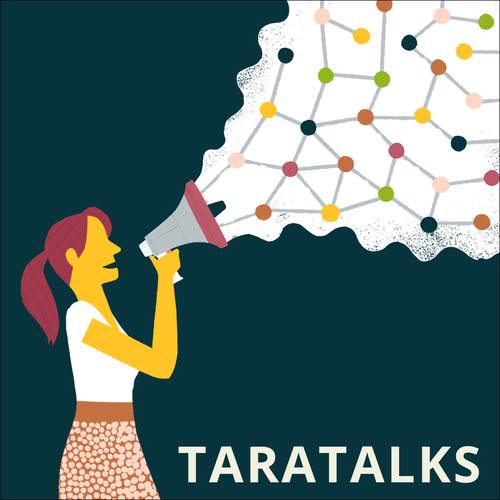Mom Guilt—working mothers have experienced this at least once, if not multiple times, as we incorporate family and work into a purposeful life. As Marie Lalleman discusses in our latest TaraTalk, the guilt she experienced seemed a part of her DNA, and she recommends accepting and moving forward from it.
As Dr. Isabel Torres has reported, the bias against working mothers still exists in many parts of the world. Unfortunately, this bias is so pervasive women can often confuse this societal influence as something internal or simply a natural phenomenon arising after becoming a mother.
Yes, the feeling of guilt may be partly genetic as Marie suggests, but in my experience, societal influences bred the guilt within me.
Over two decades ago, I overheard a neighborhood conversation: “Can you believe she is leaving the baby with the sitter and sometimes even taking the baby to daycare so she can work?” Ouch. This stuck with me.
“She should not be teaching when she has young kids!” Yikes. That was a student’s complaint when I was a single mom teaching at a university. I needed to bring my children to night class and would host them in a separate classroom with books and toys, so they could entertain themselves while I taught statistics in the room next door.
I shrugged these and other experiences off each time, telling myself, “What do they know? I love my work, and it is important to me.” But inside, these comments stayed with me, breeding the Mom Guilt.
My strategy to cope with Mom Guilt was to redefine what “normal” meant for me. First, I reminded myself that I did not have to feel this way—fathers with careers don’t necessarily feel this way, why should I? Second, I tossed out society’s definition of “normal” and simply deflected any societal expectations that did not fit with my personal definition of “normal”.
Here is one example: I was working full-time, going to grad school at night and on weekends, and during that time also gave birth to two kids! I distinctly remember sitting in the back of one classroom, nine months very pregnant, with my feet up on the seat in front of me, thinking, “I can do this!” But I had to shrug off the expectation of graduating within two years and instead accepted that “normal” for me was quite different.
Here is another example: I took alternative career paths when needed. I once combined two jobs to balance work and single motherhood. One as a part-time traveling management consultant and one as an executive coach. My definition of a great career at the time may have been different from others, but I defined it as my “normal.”
I also had to let go of trying to do everything myself. My “normal” was to accept help wherever I could get it! I accepted help when my parents moved in with me during the summers to help me care for my kids when I was working or traveling. My “normal” also included hiring on-call nurses when I had critical meetings, and one of my kids was sick.
Let me be real though, it was not easy to work through Mom Guilt. Redefining “normal” helped, but it took hard work and time to let go of others’ expectations.
Unfortunately, working mothers today still face societal bias. Often it is more covert than what I faced, but it still lives on. The other day, I was speaking to a woman who just had a baby. She is working hard to balance a full-time career and household duties. She wants to approach her husband to ask for help. However, she thinks the conversation with her husband might be difficult. Why? Because of his parents’ comment about a wife’s responsibilities in the home, she’s hesitant to ask her partner for help.
What if this bias against working mothers and the societal definitions put upon us completely evaporated? What if a woman could return to work after having a baby with only positive support? Imagine any woman in any field in any country pursuing whatever their heart desires without guilt, judgment, or negativity—it’s just perfectly normal for her to do so!
What can we do together to help? It starts by recognizing the bias when and where it exists. Then, we can:
- Band together as STEM + working mothers to support each other when Mom Guilt takes over. Join us at Gotara where you can get support, practical advice, and access to working moms who understand what you are going through. Let us help all working moms out there be happy mothers and happy professionals.
- Continue to conduct research to highlight the sources of bias and the negative consequences it produces for women, for economies, and society as a whole.
- Work with policymakers to revise or eliminate government policies that make it harder for working mothers and insist on policies to support working mothers.
By the way, I am now a first-time grandmother. My son has a daughter. I hope that, if she wants to pursue a STEM + career and be a mother, all of society will embrace her hopes and dreams and support her fully as she pursues her life’s mission.
Gotara is here to support all STEM + women and their managers, and we can share some of our best advice on addressing and overcoming bias.





